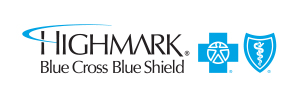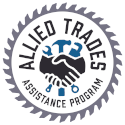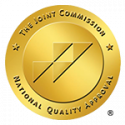Embarking on a sobriety journey can be a daunting task, especially in the initial stages. The first week is crucial as it sets the tone for the rest of your recovery. Whether you’re transitioning from an outpatient treatment program or starting your path to sobriety on your own, having a solid plan can make all the difference. We want to set you up for success! If you’re wondering how to stay sober for a week and beyond, here are some effective tips and strategies.
1. Get into a Daily Routine
Having a solid daily routine can help you stay on track and minimize the urge to relapse. By creating a well-structured schedule in your recovery journey, you keep yourself occupied with positive activities, leaving little space for cravings to creep in. Make sure to include regular meal times, exercise sessions, work or study periods, and enjoyable leisure activities in your routine. By sticking to your daily groove, you not only keep yourself busy but also give yourself the opportunity to develop healthy habits that will support your long-term sobriety.
2. Stay Connected with Support Systems
Having a strong support system is crucial for staying sober. This can include your family, friends, or groups like Alcoholics Anonymous (AA) or Narcotics Anonymous (NA). An important part of this process can also be building new connections. Some of your relationships may be more toxic than helpful, and it’s okay to let them go. Attending meetings and sharing your journey with others can give you the motivation and support you need. Outpatient treatment programs are also a valuable resource as they offer flexible support and professional guidance during your first week of sobriety. Remember, you don’t have to go through this alone. Reach out to your healthy relationships for help.
3. Avoid Triggers
Understanding your triggers is a crucial step in preventing relapse during the recovery process. Triggers can come from external factors like people, places, things, and situations, as well as internal triggers like feelings, thoughts, and emotions. It’s important to identify these triggers and find ways to avoid or cope with them, especially in the early stages of recovery.
Take the time to make a list of your triggers and come up with strategies to handle them. For example, if walking past a certain bar makes you crave a drink, try taking a different route. And if certain social situations make you uncomfortable, it’s okay to steer clear of them until you feel more confident in your sobriety.
4. Practice Self-Care
Taking care of yourself is super important during your recovery. It’s crucial to give attention to your physical, emotional, and mental well-being, as it will really help you on your path to sobriety. Don’t forget to get some regular exercise, eat a balanced diet, and make sure you’re getting enough sleep – it’ll do wonders for your physical health. Practicing mindfulness with activities like meditation and yoga can help reduce stress and improve your emotional stability. And don’t forget to indulge in hobbies and activities that you love – they’re a great way to channel your energy and emotions in a positive way.
5. Set Small, Achievable Goals
Setting small, achievable goals is a great way to feel proud of yourself and stay motivated on your sober journey. Instead of overwhelming yourself with big, long-term goals, try to focus on taking it one day at a time. Remember to celebrate even the smallest victories each day.
One of our favorite quotes is by Tony Robbins: “Setting goals is the first step in turning the invisible into the visible.”
By doing this, inner strength, knowing that you can trust yourself as you come up against any bigger challenges.
6. Seek Professional Help
If you’re finding it tough to stay sober on your own, don’t hesitate to reach out for professional help. Addiction treatment centers are here for you, offering a variety of services like counseling, therapy, and medical support. These resources can be a game-changer, especially during that crucial first week of sobriety. With outpatient treatment programs, you can get the flexible support that’s tailored to your needs, all while juggling your everyday responsibilities. Remember, you don’t have to face this journey alone – help is just a call away.
7. Use Positive Affirmations
We are big believers in the power of words! Positive affirmations are powerful tools that can help reinforce your commitment to sobriety. Repeating affirmations can shift your mindset, boost your self-esteem, and reduce negative thoughts. Here are some inspirational affirmations to support your sobriety journey:
- “I am strong and capable of overcoming my addiction.”
- “Every day, in every way, I am getting better and better.”
- “I choose sobriety and am proud of my progress.”
- “I deserve a healthy and happy life.”
- “I am in control of my actions and make positive choices.”
Adding these affirmations into your daily routine can provide a constant reminder of your goals and the progress you’re making.
Find Substance Use Disorder Help
Staying sober for a week is a commendable goal and an essential step in your sobriety journey. By establishing a routine, connecting with support systems, avoiding triggers, practicing self-care, setting achievable goals, seeking professional help, and using positive affirmations, you can increase your chances of success.
For more information on outpatient treatment options and addiction treatment centers in Sicklerville, NJ, or Philadelphia/Plymouth Meeting, PA, visit Sobriety Solutions. Your path to a healthier, sober life begins with a single step—take it today.










